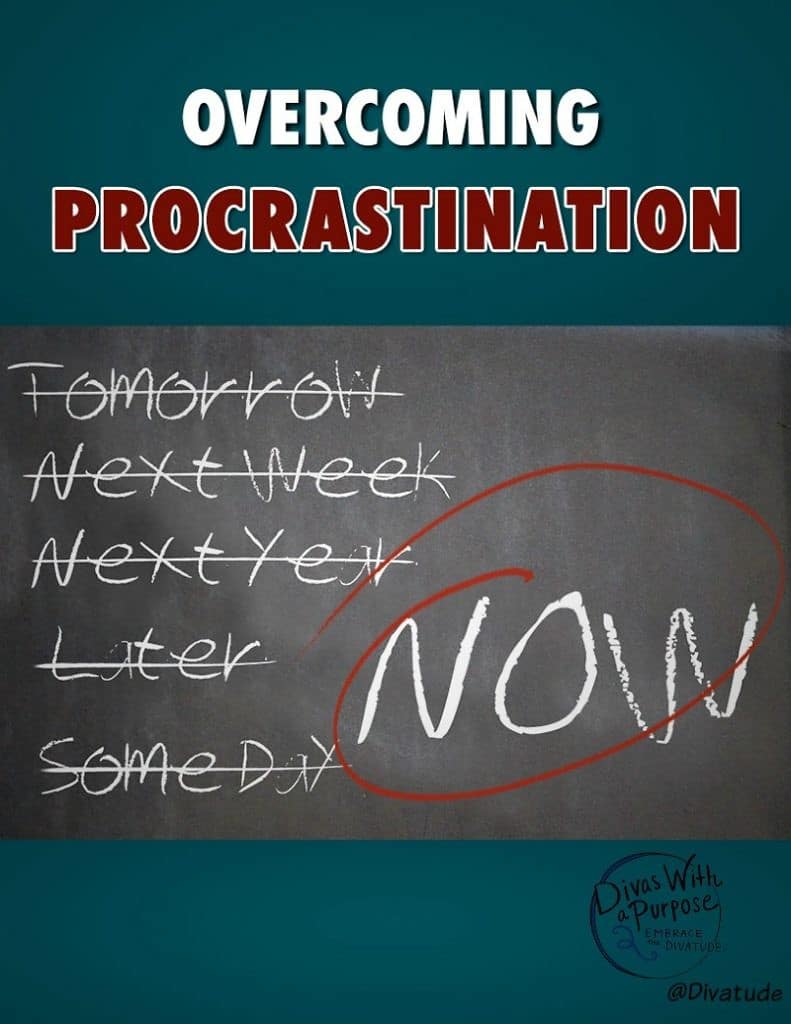14 Strategies For Overcoming Procrastination
Is overcoming procrastination a goal of yours? Perhaps I should ask, should overcoming procrastination be a goal of yours? Not sure? Let’s see … Does this sound familiar? You have plans and ideas for getting some writing done on the report due tomorrow. You sit down at your desk but notice there are a few piles of paper surrounding your desk. So you take a few minutes to go through them. Now, you’re ready to write. Oh, wait –you need to put dishes in the dishwasher. That won’t take long. While you’re in the kitchen you might as well grab a snack. Now you can begin writing. Maybe you’ll just check your email and see what’s going on with Facebook. Before you know it the entire day has gone. Sound familiar, at all?
Mark Twain captured the essence of procrastination with his famous quote: “Never put off until tomorrow… what you can do the day after tomorrow.” There are a lot of people who live by this adage almost religiously. And when we see that the results of this are less than what we like, we decide to stop procrastinating, beginning tomorrow.

This is a typical of procrastination. There are many reasons why we procrastinate: poor organizational skills, lack of self-esteem, a fear of failing or even succeeding.
[Tweet “When facing a difficult task that is causing procrastination, tackle the task step by step. (Retweet!)”]
Procrastination can cause many problems in your life, but it’s not a behavior you can’t change with a few helpful strategies. Procrastination in itself can be used as a way to get you out of procrastinating. In other words, use your way of putting things off to tackle each project.
Strategies For Overcoming Procrastination
Here are 14 strategies you can apply to help you get started dealing with procrastination:
- Do the hardest and most unpleasant tasks first. Get them out of the way.
- Break down big projects into smaller ones. Do a little bit, then move on to another section of the project. Eventually you will have the project completed.
- Work for five minutes. Sit down and work on something for just five minutes and then move on to something else if you want or continue for another five minutes on the same task. Continue in this manner until you complete the task.
- Make a list of all the positive things that will come from getting the task done. Also list the bad things that could and probably will happen if you continue to procrastinate about the task.
- Look at what you actually have to do and make an assessment of what needs to be done. Then set a time limit on doing each of the tasks.
- Learn to realize it doesn’t have to be perfect. Good enough is good enough and often it’s done. Of course, you want to do excellent work – it just doesn’t have to be perfect.
- Be prepared. Plan your work area. Make sure you have everything you need to do the job. Have your stamps, envelopes and checkbook all in the same area when you get ready to pay the bills. Set out all your paperwork and open the right computer files when you are ready to begin writing.
- Ask for help. Often a project might just seem too overwhelming. Ask others to help you.
- Reward yourself. Set up a pleasurable activity to do once your project is finished.
- Manage your time. Use planners and diaries to organize your time. Set specific dates and times to begin and complete your work.
- Break the bad habit. It will take time but the habit of procrastinating can be altered.
- Focus on finishing. Keep your end goals in mind as you work.
- Establish your priorities. Determine what must be done first – it isn’t always the easiest.
- Change your environment. Sometimes we need to make adjustments to where we are working. If you can’t work from your home office because of too many other distractions, go to the local coffee shop to work on a project.
Strategies for overcoming procrastination can be as simple as being prepared to as difficult as changing your habits. Once you begin to focus on how and why you procrastinate and begin changing the habit of doing it, you will become motivated to act on all your projects.
[Tweet “14 Strategies For Overcoming Procrastination”]
Procrastination is a habit that causes us to lose out on opportunities and to fail at relationships. It can cause emotional, financial and health problems to those who constantly put things off. However, you can change this bad habit. Ask yourself what you are avoiding. With persistence and patience, you can put the tendency to procrastinate behind you.
Related Articles:



